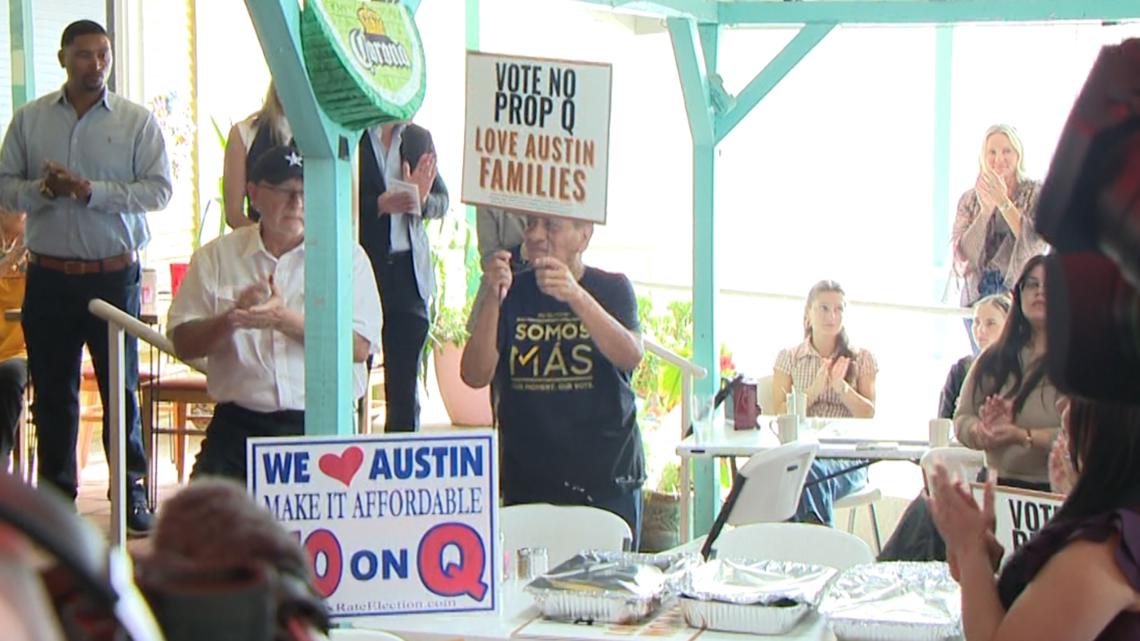The measure to raise Austin’s property tax rate would generate about $110 million more this fiscal year while costing the average homeowner about $300 per year.
AUSTIN, Texas — On Monday, as early voting kicked off across Texas, dozens of people rallied in Austin against one big ballot item for city residents: Proposition Q.
If approved, it would raise the city’s property tax rate by 5 cents per $100 in value, generating about an extra $110 million for the current fiscal year.
Voter approval is required because the city property tax revenue would exceed a state-imposed limit.
City leaders say they need that money to tackle issues like homelessness, public safety and park maintenance.
The increase could cost the average homeowner about an extra $300 a year in city property taxes, which opponents worry would worsen affordability and push more people out of Austin.
On Monday morning at longtime East Austin restaurant Juan in a Million, homeowners, renters, community leaders and politicians gathered for a news conference to speak against the measure.
“It is a giant slush fund forever,” said Bill Aleshire, former Travis County Judge.
Speakers singled out vague ballot language and pointed to other cash-strapped cites that tightened their belt.
“Houston had a deficit six times as large as ours, and they still did not go ask voters for more money to make things work, to make their budget work,” said Marc Duchen, Austin City Council Member for District 10, who previously cast the lone no vote against setting this tax rate election. “They instead did this efficiency study that I mentioned which, to date, has saved over $120 million.”
Steven Brown is a lifelong East Austin resident who still lives near the street where he grew up, despite the neighborhood changing around him.
“The loss of community, people not being able to afford to stay here, not being able to afford to be close to their safety net and families who can help out,” said Brown, talking with KVUE on Monday about the changes he’s seen.
Brown worries that problem will get worse if Proposition Q passes.
Immediately after his interview with KVUE, Brown went to the polling place at Carver Branch Library in East Austin to cast his ballot.
Still, Prop Q has its supporters.
Ahead of the start of early voting, KVUE spoke with the head of a government employees union. Brydan Summers is president of The American Federation of State, County, Municipal Employees (AFSCME) Local 1624, a union representing city of Austin and Travis County employees.
He worries about layoffs if voters reject Prop Q, adding the money would help the city make up for state limits on local property tax revenue and federal funding cuts.
“Seeing those grants be pulled, they want to starve city government, and we’re really trying to tell people that we all want these services, and so we’ve got to support each other and take care of ourselves,” said Summers.
At the No Kings rally in Austin on Oct. 18, Congressman Greg Casar, a Democrat whose district includes East Austin, voiced his support for Prop Q.
“To save our ambulances, to save our shelters from Trump’s cuts,” Casar told the crowd.
If voters approve Prop Q, that tax rate increase becomes permanent. Any future tax rate increases would build off of the new rate.
Early voting runs through Friday, Oct. 31. Election Day is Nov. 4.

